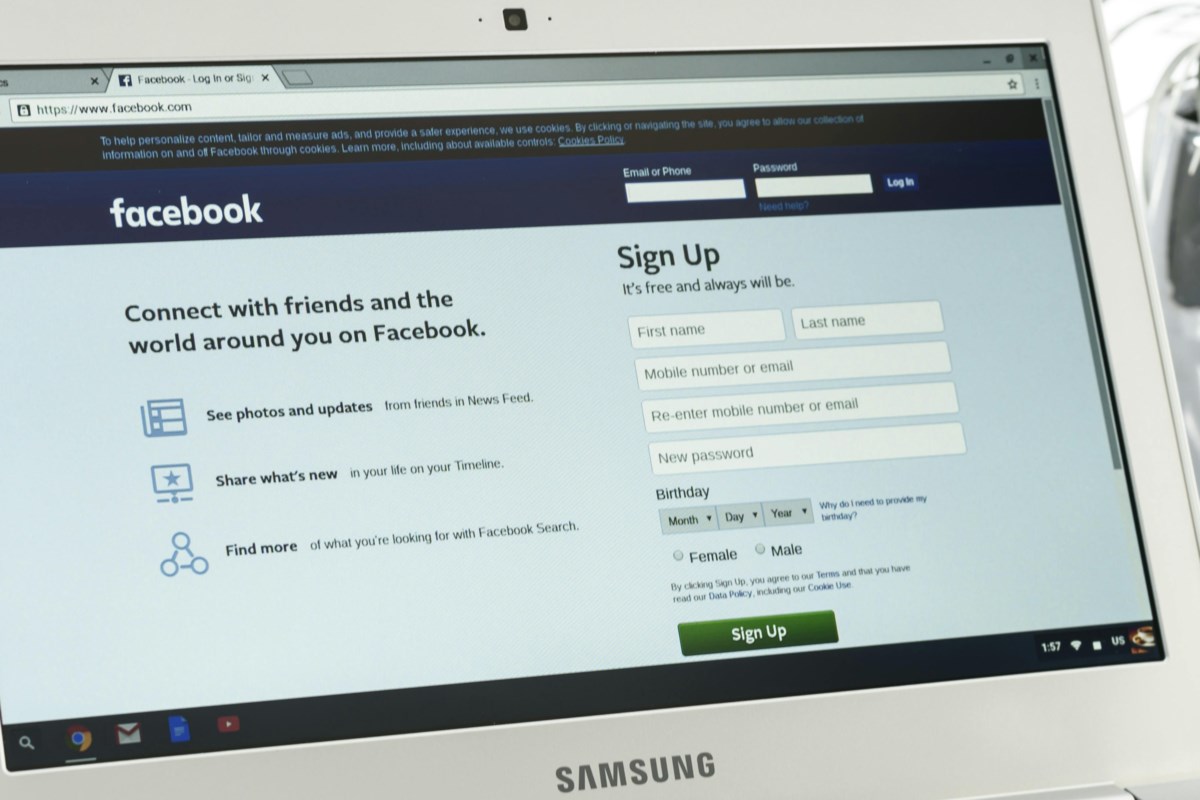Media
B.C. privacy commissioner suggests media civility for Prince Harry and Meghan – Times Colonist

VICTORIA — Media outlets in Canada should practise civility and self-regulation in respecting the privacy rights of Prince Harry and Meghan, the Duchess of Sussex, says British Columbia’s privacy commissioner.
Michael McEvoy said Wednesday media freedoms in Canada are vast and paramount to ensure a free press, but the couple’s privacy should be a consideration as they take up residence near Victoria.
Trending Stories
Lawyers for the Duke and Duchess of Sussex reportedly sent a letter to the British press threatening legal action after Meghan and her young son Archie were photographed walking in a public park north of Victoria.
“I would just say as B.C.’s privacy commissioner that I think it behooves us all to exercise some kind of self-regulation, some kind of civility to respect the rights of others to go about their daily business without being surveilled,” he said in an interview.
McEvoy said individuals, regardless of their celebrity status, deserve some privacy rights.
B.C.’s Personal Information Protection Act restricts private organizations, including corporations, unions and political parties, from disclosing the personal information of individuals, but the act does not apply to the collection of information for a “journalistic or literary purpose,” McEvoy said.
B.C.’s Privacy Act allows individuals who believe their privacy has been invaded to go to court, but the law has not been well tested, he said.
“It’s an open question whether that legislation would provide a remedy to royals or anybody else who wants to exercise it,” said McEvoy.
Vancouver media lawyer Dan Burnett said the couple’s expectation of privacy in Canada would depend on the individual situation if they decided to take the matter to court. He said claims by media that photos were taken in a public place may not be enough.
“It’s very situational, and too simplistic to say ‘It’s a public place,’ ” he said. “Factors, such as young children and surreptitious photography, tend to suggest an expectation of privacy.”
Burnett said court claims in B.C. for breach of privacy are based on whether reasonable expectations of privacy are violated.
Alfred Hermida, a journalism professor at the University of British Columbia who worked as a reporter in the U.K., said the royal couple are hot news and they should expect to be making headlines when they step out in public.
“It’s really complex, really complicated because the law is not clear cut here,” he said. “Press coverage of this is this thin line of what is in the public interest and whether you’ve breached that just to have photos that are interesting to the public and will sell newspapers or get clicks.”
Hermida said there is a long tradition in the U.K. of media of investigating and exposing the private lives of well-known people, but that approach is not as prevalent in Canada.
“Taking a walk in the park and having their picture plastered across the world’s media, is that an intrusion that would be highly offensive to a reasonable person?” he said. “It might be to a Canadian, might not be to somebody in the U.K., where this is more common.”
Hermida said he finds it difficult to understand that Harry and Meghan believed their recent decision to step back from the Royal Family and move part-time to Canada would not place them in the media spotlight.
“In some ways I would argue by making the decision to step back formally as royals they’ve created more interest in what they are doing,” he said. “There’s the expectation of reasonable interest in them in how they chart a new life in Canada. We’re looking at royals, post royalty, and this is new.”
This report by The Canadian Press was first published Jan. 22, 2020.
Media
Taylor Swift's new album allegedly 'leaked' on social media and it's causing a frenzy – CTV News


Social media can be a divisive place, but even more so when it comes to Taylor Swift.
A Google Drive link allegedly containing 17 tracks that are purportedly from Swift’s eagerly awaited “The Tortured Poets Department” album has been making the rounds on the internet in the past day and people are equal parts mad, sad and happy about it.
CNN has reached out to Swift’s representative for comment.
The actual album is slated to drop at midnight Friday, but the claimed leak is both being hailed and nailed by Swift’s supporters.
One person shared a drawing of a young woman asleep in a sparkly bed with sparkly blankets on X, writing, “How I slept last night knowing I’m going to hear TTPD for the very first time tonight cause I haven’t listened to any leaks.”
Yet another person posted a video of two models walking and wrote, “Me and my bestie on our way to listen to #TSTTPD leaks.”
On Thursday, “Taylor Swift leaks” was a prevented search phrase on X.
The general consensus among those who have decided to be “leak free” appears to be that they are the true Swifties – as her hard core fan base is known – because they don’t believe the singer would have sanctioned such a “leak.”
Swift herself has gone to great lengths to prevent unintended early releases in the past.
“I have a lot of maybe, maybe-not-irrational fears of security invasion, wiretaps, people eavesdropping,” Swift said of her music during an 2014 appearance on” Jimmy Kimmel Live.” She added that her “1989” album only existed on her phone, “covered in cat stickers and the volume buttons don’t work very well because there’s candy stuck in there,” for nearly two years.
“The Tortured Poets Department” is Swift’s 11th album and comes after she became the first woman and only solo artist to win the Grammy for album of the year three times.
Media
Media mogul Randi Zuckerberg says creators should disclose when they've used AI to produce work – The Globe and Mail


Randi Zuckerberg says she thinks creators should start disclosing when they’ve used artificial intelligence to produce work because it’s “becoming harder and harder to tell what’s real.”
The tech leader behind Facebook Live META-Q, who left the social media giant in 2011 and has since founded a company that connects digital art makers with collectors, said she’d like to see news organizations note when they have used AI to write articles or even credit the technology in a byline.
Academics could offer similar levels of transparency, which might spur a pattern of disclosure across several industries, she added.
If this approach becomes the norm, “consumers can learn to be a little more savvy about what’s real and what’s not real,” Zuckerberg said in an interview on the sidelines of the Ontario Centre of Innovation’s DiscoveryX conference in Toronto on Wednesday.
“Certainly, I think, it’s an issue that keeps a lot of us up at night.”
The issue of misinformation has proliferated in recent years. About six in ten Canadians told Statistics Canada last year that they were “very or extremely concerned” about online misinformation, while 43 per cent felt it was getting harder to decipher online truth from fiction compared with three years earlier.
AI has turbocharged the problem by making it faster, cheaper and easier to deceive people with fake or doctored images, audio clips and videos. In the last year or so alone, it’s been used to spread fake explicit images of pop star Taylor Swift, depict the pope wearing a puffy coat and mislead people into believing Canadian TV host Mary Berg was arrested.
Social media companies like Facebook, which Zuckerberg’s brother Mark Zuckerberg started, have found themselves on the front lines of dealing with misinformation.
While Randi Zuckerberg is unsure how receptive the corporate world would be to the level of AI disclosure she is encouraging, she thinks it’s important to start the conversation.
Those engaged in the topic will have to decide whether disclosure means sharing what AI bots or programs they used or even what prompts produced their creations.
“There are a lot of smarter people with experience in AI, law and copyright who are thinking through these things on a deeper level,” she said.
“But I do imagine that we’ll see a world where at least some of these things need to be referenced right now.”
Even if there is disclosure, Zuckerberg said, people will be left with deciding how they feel about “the soul of content.”
“Would you listen to a podcast if you knew that there were no humans behind it?” she questioned. “Would you hang art on your walls that was entirely created by AI that a human never touched?
Zuckerberg, who invested in the hit theatrical production “Dear Evan Hansen,” said she’s thought about these questions a lot and has decided she’d be comfortable throwing AI-generated art on her wall.
“If something’s beautiful, does it matter who created it?” she reasoned.
At the same time as the globe is grappling with AI, some regions are also experiencing challenges around access to credible news.
In Canada, the recent enactment of Bill C-18, known as the Online News Act, has required Google and Facebook and Instagram-owner Meta Platforms Inc. to enter into agreements that compensate Canadian media companies when their content is posted or repurposed by the platforms.
In response, Google, which threatened to block Canadian news from its products, agreed in November to make annual payments to news companies collectively totalling $100-million. Meta took the opposite approach, removing Canadian news from its platforms.
Asked about platforms dropping news, Zuckerberg said, “so much of the world has kind of gone to algorithms in some way.”
“But news is a tricky one because then it just surfaces things that keep us in an echo chamber,” she said, referencing a term used to describe when platforms serve content to individuals that reaffirms their existing views rather than challenging them.
“News is almost the one category where you want to deliver content to people that’s kind of outside their rhythm to challenge their thinking a little more or expand their horizons,” Zuckerberg continued.
“That’s the part of this that we’re missing that I hope we can figure out.”
Media
PART 2: Is social media the great equalizer or the great menace? – OrilliaMatters


Editor’s note: The following is the second instalment in a three-part series. To read Part 1, click here.
Depending on who you talk to, social media is either a great equalizer or a great menace.
Some folks believe it’s a great equalizer because it can give a platform to every voice.
Others think it’s a great menace for the same reason.
Essentially devoid of rules, restrictions or any code of conduct, social media can be a battleground — divisive, antagonistic and intolerant.
Linda Myles is the administrator of a Facebook group called Engaged Residents of Oro-Medonte (EROM), a private group of about 550 members that discusses the comings and goings in Oro-Medonte Township.
She said her experience being a victim of harassment, bullying, and misleading and false posts has made her more cautious about how she administers the EROM group.
“I don’t want anyone to be subjected to that in our group,” Myles told BarrieToday. “We have a zero-tolerance policy on abuse, personal attacks or false or misleading information about anyone.”
She said the group has removed and blocked 11 profiles in two years.
“Most of those were because the person engaged in ongoing personal attacks and/or disrespectful language,” she said.
Myles said some were removed when administrators discovered they were not using their real names.
Fake profiles and false identities are an ongoing challenge on social media. Creating one requires little effort. Googling ‘create a fake profile on Facebook’ generated about 158 million results in less than a second.
“I suggest there exist those who are emboldened by the faceless, anonymous and remote nature of social media that behave far differently online than they do in their daily face-to-face interactions,” said George Cabral, Springwater Township’s deputy mayor.
“One way to deal, as an individual, with this type of distortion is to tune it out and avoid participation as much as possible.”
In “real life,” Cabral said, people talk behind others’ backs all the time, but, for the most part, the person who is being talked about remains unaware because people are too polite to mention whatever the slight might be to their face.
On social media, though, not only do people comment, but they go out of their way to ensure the person who the comment is about knows the comment exists.
“Folks feel emboldened to write/say whatever they might normally only say in private or behind one’s back,” Cabral said, “but there it is, completely out in the open for anyone’s eyes to see or ears to hear, including the individual to whom the comment was directed.”
Don Lewis is the administrator of a Facebook group called Oro-Medonte Community Matters. The group features new posts almost daily, many of them pointedly critical of members of Oro-Medonte council. The group has almost 1,000 members.
A number of Oro-Medonte councillors called the site out for distributing misinformation, posting personal attacks on council members and generally stirring the pot.
They claim Lewis is not a real person — that it’s a fake profile being used to conceal the identity of a disgruntled resident.
“I’ve been called Don Lewis all my life. I live in Oro-Medonte,” Lewis said during an exchange on Facebook with BarrieToday.
“I hear all the accusations made against me, but I just don’t care.”
According to Lewis, the Oro-Medonte Community Matters page allows anonymous contributions because there are ratepayers who are afraid to speak publicly due to having been bullied and having lost business due to their companies having been targeted by people whose opinions differed from theirs.
“This is a way to allow freedom of expression without exposing people who are at risk,” he said.
Lewis also claims some of his group’s members have had anonymous, defamatory letters sent to their employers.
When asked to provide specific instances or names of people who have been bullied or lost business due to their comments, Lewis didn’t provide any.
He said the issue is not about who is doing the posting, but rather what is being posted.
“Simply posting facts is not bullying,” he said.
But the root issue, according to some township councillors, is the veracity of those facts. They point out municipal politics is filled with moving parts; some decisions are made in public and some are made in closed session. Unless you’re privy to all of those conversations, any speculation is just that.
“The opportunity to disseminate distortion, perpetuate false narratives and create controversy, to my mind, anyway, weaponizes social media far too easily, taking it far from the good, valuable communications tool it was meant to be,” said Cabral.
“That is the difficulty. And while I do believe it’s a small percentage of users, the numbers don’t matter when their frequency and reach can be so vast digitally. With one post followed by a click of a button, a comment — good or bad — can be instantaneously posted to a myriad of social media accounts.”
‘Russ Logan’ is the administrator of the Springwater Ontario Discussion Group, which has about 1,000 members. He is quick to point out Logan is not his real last name. He said he’s a Springwater resident who uses a ‘nom de plume’ because of his job.
He said set up the group page to get people engaged and hopefully get some feedback local politicians would consider when making decisions for the community.
“I try not to censor too much unless it is completely rude and unhelpful,” he said during a Facebook chat. “To be mad is OK. To be insulting or threatening is unacceptable and will not be approved.”
Back in Oro-Medonte, Myles said Facebook needs to take an active role in controlling the online environment. She said she’s reported harassment and bullying to Facebook, but with no results.
“In my experience, Facebook does nothing,” she said. “There are far too many harassing, slanderous and defamatory posts allowed on Facebook.”
BarrieToday reached out to Facebook to find out how the social media giant defines harassment, bullying and intimidation, and what steps it takes when a complaint is made. Despite repeated requests, Facebook didn’t respond.
-



 Science6 hours ago
Science6 hours agoJeremy Hansen – The Canadian Encyclopedia
-



 Tech24 hours ago
Tech24 hours agoCytiva Showcases Single-Use Mixing System at INTERPHEX 2024 – BioPharm International
-



 Health20 hours ago
Health20 hours agoSupervised consumption sites urgently needed, says study – Sudbury.com
-



 Investment6 hours ago
Investment6 hours agoUK Mulls New Curbs on Outbound Investment Over Security Risks – BNN Bloomberg
-



 Tech6 hours ago
Tech6 hours agoSave $700 Off This 4K Projector at Amazon While You Still Can – CNET
-
News20 hours ago
Canada's 2024 budget announces 'halal mortgages'. Here's what to know – National Post
-
News18 hours ago
2024 federal budget's key takeaways: Housing and carbon rebates, students and sin taxes – CBC News
-



 Science19 hours ago
Science19 hours agoGiant, 82-foot lizard fish discovered on UK beach could be largest marine reptile ever found – Livescience.com








